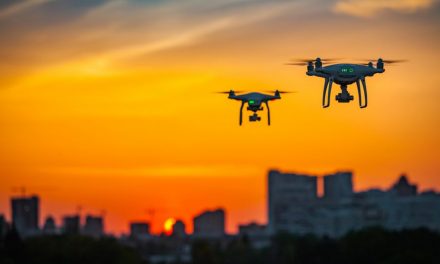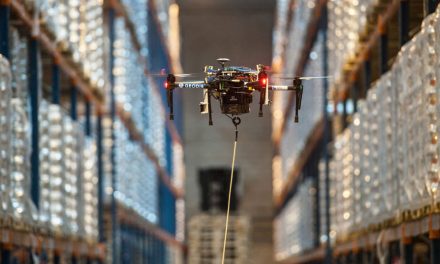
Drone delivery – what’s the rush?
Paul Galpin, Managing Director of P2P Mailing, considers what drone deliveries could mean for the retail sector. The news that Amazon is set to test drone delivery in partnership with the UK government is the latest in a long line of delivery innovations.
But what does drone delivery really mean for the retail sector?
The temptation is there for retailers to embrace this latest innovation in order to enhance the customer experience and steal a march on competitors. However, the rush to look ahead to future delivery solutions can serve as an unwelcome distraction from the day-to-day delivery challenges currently facing retailers. So just how viable are drones as a delivery option and what are the implications to the retail sector?
The government backed programme, funded solely by Amazon, will look at the most effective way to allow hundreds of robotic aircraft to safely navigate Britain’s skies. The Civil Aviation Authority has granted the retail giant special permission to test drones carrying deliveries weighing 2.3kg (5lb) or less – which typically make up 90% of Amazon’s sales[1], without several of the rules that typically bind drone pilots. For example, Amazon will be able to operate its vehicles without a direct line of sight, and will be able to trial “sense and avoid” technology that lets the drones automatically evade obstacles in the air. Amazon will also be able to allow one pilot to control multiple autonomous vehicles. These restrictions are only being lifted in certain “controlled spaces” approved by the CAA.
Amazon has been at pains to flag the benefits of this proposed delivery platform. According to the retail giant, drone delivery will eventually mean small parcels will arrive at your door within 30 mins of ordering them online.[2] With retailers having to work harder than ever to match consumers’ expectations it is easy to see why drone delivery is such an attractive proposition. Especially with convenience being geared around the consumer.
While drones have the potential to revolutionise how retailers approach delivery, there are a number of questions on how this theory will work in practice. For example, safety is a key concern. If an airborne unmanned drone experiences a comprehensive technical failure then it is inevitable that it is going to come down, potentially landing on an unassuming person in the process. A number of factors could lead to technical failure such as collisions with other drones, or even collisions with buildings – particularly in an urban landscape where high risers are increasingly becoming a common feature. There is also the issue of air traffic control and the centralised management of relatively low level airspace congested with these drones. Practically speaking there are clearly many considerations for which solutions have yet to be found and tested.
There are also wider societal issues to consider. If delivery drones are equipped with cameras there is a potential invasion of privacy to contend with. The fact drones are fitted with propeller blades means overhead noise is also an issue that will have to be taken into account. When weighing up these factors, there is no guarantee people will welcome drones as a day-to-day part of their lives.
In time, drones could fundamentally reshape how retailers approach delivery. However, there a number of technical and regulatory questions which need to be answered before drone delivery achieves widespread social acceptance. If retailers are grappling with the challenges of tomorrow they run the risk of neglecting the challenges of today. At present there is no one size fits all customer profile and so delivery preferences vary considerably from customer to customer. The bottom line is to know your customer and tailor your delivery solutions accordingly. By engaging with a third-party expert with the necessary knowledge contacts and expertise, retailers can face today’s challenges with total confidence and clarity.
[1] Guardian, ‘Amazon to test drone delivery in partnership with UK government’, https://www.theguardian.com/technology/2016/jul/25/amazon-to-test-drone-delivery-uk-government, 26 July 2016
[2] BBC News, ‘New trials for delivering goods by drones’, http://www.bbc.co.uk/news/business-36887325, 26 July 2016












